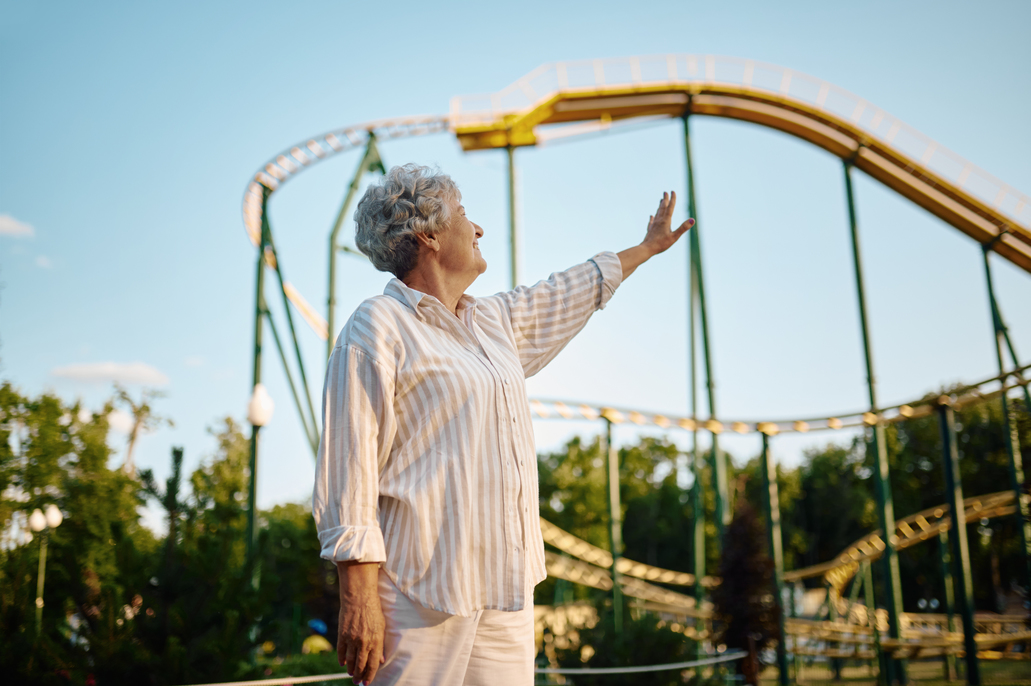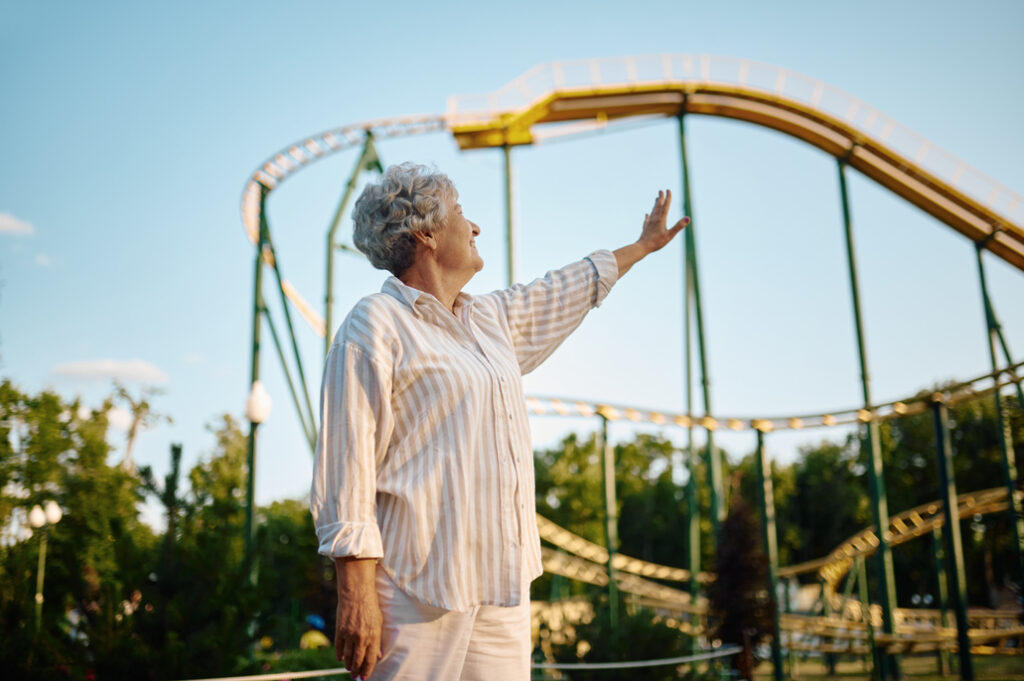Road After 60: Finding Meaning & Value in Later Adulthood

Jung is famous for his focus on the second half of life. And within that second half of life, there are specific challenges for individuals 60 and over. It’s very worthwhile to explore the importance of later adulthood, when we each complete that precious creation, our unique life.

Our culture doesn’t really help us when it comes to later adulthood. Despite the fact that people are living longer than ever before, our society is morbidly gripped by the cult of youth. Advertising, television and movies all proclaim that what is really to be prized in life is youth, and that aging is a dismal, threadbare process that we should all work actively to shun in every possible way. The age we live in screams at us to do everything we possibly can to our skin, muscles, hair, and minds to avoid the curse of getting older.
As case studies and writer Connie Zweig reminds us,
Today the divine messengers of age go unheralded. Though they are inevitable, they go unwelcomed…. We may throw a party to celebrate a retirement. But afterward? Most of us tend to view our final years, which may last decades, merely as a slow decline, a series of disconnected, meaningless events and impairments eventually leading to death.
No one teaches us how to heed the messengers. No one models for us how to retire, become a grandparent, recover from illness, or lose a loved one as a sacred passage into a new stage of awareness.
Connie Zweig, The Inner Work of Age
The Importance of Later Adulthood
No one teaches us, or models these things for us, in our present-day culture. However, it wasn’t always that way. For thousands of years our ancestors in earlier societies had a strong and clear vision of later adulthood, or elderhood, and they respected older adulthood through ritual and tribal customs. They were keenly aware of the potential for a different kind of consciousness that was sometimes possible for older adults, and this they called “wisdom”.
What would it mean for us to listen to the “divine messengers of age”? One key step would be to recognize and give due weight to the major life transitions that we undergo in later adulthood. As noted above, given the biases of the time we live in, it’s easy to experience each major change as merely a diminishment and a loss. As noted aging activist Zalmon Schachter-Shalomi put it,
Everywhere you look, old age suffers from a bad reputation. Because of negative images and expectations shared by our culture, people enter the country called “old age” with fear and trembling. Feeling betrayed by their bodies and defeated by life, they believe they’re condemned to lives of decreasing self-esteem and respect. As citizens of this oppressed nation, they expect to suffer from reduced vigor, enjoyment, and social usefulness.
This is the experience of many in later adulthood. Yet people like Zweig and Schachter-Shalomi—and Jung—hold out another possibility. This is that age can bring initiation into a broader and deeper sense of our own identity.
Beyond Denial and Stereotypes
C.G. Jung had many astute observations about later life, including the following:
“The afternoon of life is just as full of meaning as the morning; only, its meaning and purpose are different.”
“The first half of life is devoted to forming a healthy ego, the second half is going inward and letting go of it.“
Jung also makes an observation about the United States, that would actually apply to a great many 21st century people:
Where is the wisdom of our old people, where are their precious secrets and their visions? [Italics mine] For the most part our old people try to compete with the young. In the United States it is almost an ideal for a father to be the brother of his sons, and for the mother to be if possible the younger sister of her daughter.
So, what is Jung telling us? Well, one clear message is that the second half of life is just as precious and meaningful as the first half, but that it has a different meaning.
He suggests that the first half of life is properly devoted to all the things that our society values so much. This includes all our achievements, building of reputation, hard work and expressions of vitality. They all go into the creation of a certain kind of identity that is structured by the ego and its projects. But Jung suggests that the second half of life is “going inward and letting go” of the ego and its projects. There is something different that we can open up in the second half of life, and especially in later adulthood. This time in life offers us the opportunity to go deeper into soul, into our own true identity.
This sense of real identity can carry us beyond the frantic denials of aging. It’s possible to enter into a meaningful sense of our later years that carries us beyond the toxic stereotypes and into an awareness of fulfillment, completeness and contribution.
Being Here Now
An experience of meaningful later adulthood can take us into a place where we value the present moment, and are able to make our peace with the past. This contrasts with a later life experience that frantically chases some unrealized future, and is consumed with regret and avoidance of the past.
Working in a trusting relationship with a Jungian can be of great assistance in helping individuals to appropriately welcome the messengers of age, and to find a later adulthood filled with value and meaning.
Wishing you every good thing on your personal journey,
© 2022 Brian Collinson, 2238 Constance Drive Oakville, Ontario (near Mississauga)
